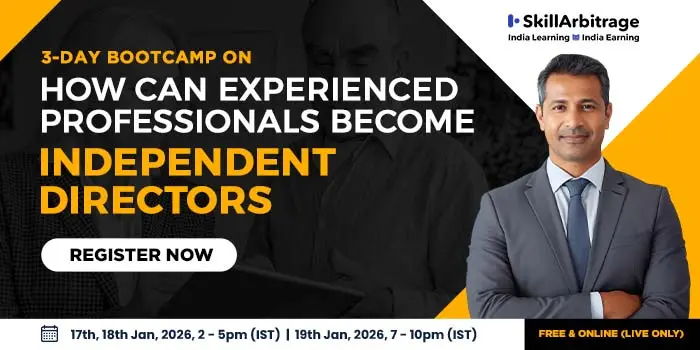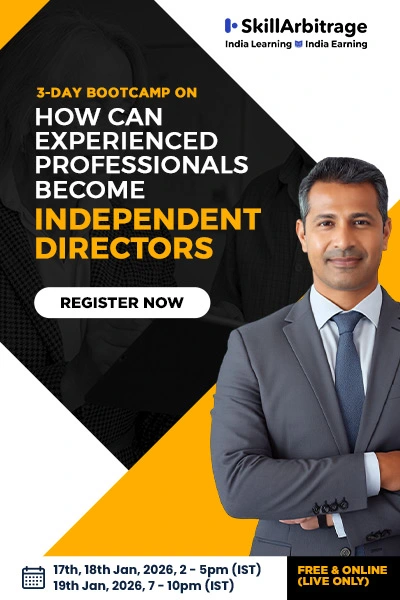Founder
47974
0
0
“My advice to young lawyers, especially first-generation lawyers, is to not overthink the difficulties of starting an independent practice. Challenges are inevitable, no matter what field you’re in.” – Rohit Chandra, Founder & Principal at the Chambers of Rohit Chandra.
This interview was taken by SuperLawyer Team
Posted on March 24, 2025
This interview has been published by Anshi Mudgal and The SuperLawyer Team

As a first-generation lawyer, what motivated you to pursue a legal career, and what challenges did you face early on in your journey?
Honestly, not having to study maths anymore was my biggest motivation at first. But as I went through law school and started practicing, I realized what really keeps me going is the ability to make a real difference in people’s lives. There aren’t many professions that give you that kind of impact, and that’s what makes litigation so rewarding for me. Being part of such an esteemed fraternity pushes me to do my job with sincerity and diligence.
The challenges in building a legal practice are immense and ever-evolving, irrespective of background. However, as a first-generation lawyer, the journey comes with additional hurdles. Without an established network or a ready-made path to follow, the learning curve is steeper, and access to fair guidance early in one’s career can be limited. Despite these challenges, I firmly believe that resilience, continuous learning, and an unwavering commitment to the profession are what define success in litigation.
How did your experience at the National Law Institute University, Bhopal, shape your path and influence your legal career?
NLIU has played a huge role in shaping me as a legal professional. During my time there, I had the privilege of meeting and building friendships with some incredible people who constantly guided, supported, and motivated me to pursue litigation as an independent advocate. In fact, every major opportunity in my legal career—whether internships, jobs, or other professional breaks—came through the support of my friends and alumni from NLIU. Needless to say, the institution has had a lasting influence on my journey. More than just academics, it helped me build a strong network that has been invaluable in sustaining my legal career, both inside and outside the courtroom.
Your career began at the Gwalior High Court, and later joined Advocate-on-Record (Supreme Court) office at New Delhi. What valuable lessons did you learn from these experiences, and how did they contribute to your development as a litigator?
As a first-generation lawyer, I believe that gaining experience in a chamber is essential before starting an independent practice. For me, these experiences have been invaluable, shaping my approach to the profession and teaching me important lessons about sincerity and dedication in law. Whether in Gwalior or Delhi, I was fortunate to work closely with some incredibly hardworking professionals who mentored me along the way. Their constant support and guidance, even today, help me navigate the complexities of the profession.
During your time at RS Prabhu & Co., you had the opportunity to work with major corporations and industry players. What challenges did you face while handling corporate clients, and how did this experience enhance your expertise in corporate law?
My time at RS Prabhu & Co. was instrumental in shaping my professional growth. Working with major corporations like Reliance Industries, ONGC, L&T etc. provided me with invaluable exposure to high-stakes corporate legal matters. This experience not only allowed me to engage with some of the biggest industry players but also gave me the opportunity to work alongside and learn from some of the most respected legal pioneers in our fraternity.
Handling corporate clients comes with its own set of challenges. Large organizations operate in complex legal and regulatory environments, requiring a deep and constantly evolving understanding of corporate law. Each case or transaction presented unique challenges, pushing me to refine my legal knowledge and skills continuously. The dynamic nature of corporate legal work—ranging from regulatory compliance to high-value contractual negotiations—demanded adaptability, meticulous attention to detail, and a proactive approach to problem-solving. I will always remain grateful to Mr. K.R. Sasiprabhu, whose mentorship and leadership at RS Prabhu & Co. created an environment that nurtured my growth. His guidance not only enhanced my expertise but also gave me the confidence to establish my own practice. The challenges I faced while working with such major corporate clients ultimately strengthened my ability to navigate complex legal issues, making me a more well-rounded legal professional.
What motivated you to transition from working in established law firms to starting your own independent practice in 2020? What were some of the significant challenges you encountered in building your practice from scratch, and how did you overcome them?
Starting my own independent practice was always the plan since my college days. However, the timing depended on several factors. It was during the COVID-19 pandemic, when many offices were shutting down, that I saw an opportunity and decided to take a leap of faith.
One of the biggest challenges early on was establishing a steady flow of work, especially since I wasn’t originally from Delhi. Ensuring that my office could sustain itself financially while also keeping myself engaged was a priority. To do that, I took on a wide range of legal work—not just court matters but anything that required legal assistance. Some of these areas were new to me, as I hadn’t dealt with them much during my time with law firms, but they kept me occupied and helped me build a foundation. The early days of independent practice can be exhausting and uncertain, but the constant support and motivation from my family, friends, and mentors made all the difference. Their guidance helped me push through the difficult phases, and over time, I was able to establish a practice that I could sustain and grow.
When preparing for and presenting arguments in criminal cases, especially those involving serious offences, what are the key considerations you take into account?
When preparing for any case and not just cases involving serious offenses, the first and most important step is to go through the case file thoroughly. Every document needs to be examined in detail to ensure there are no gaps in understanding the facts. A solid argument starts with knowing the case inside out. It’s equally important to carefully study the legal provisions under which the offense is charged. The exact wording of the law matters, and staying updated on recent judgments and legislative changes is crucial. Criminal law keeps evolving, and being aware of these developments helps in building strong and effective arguments.
I also make it a point to write down my arguments, no matter how well I remember them. Practicing beforehand allows me to structure my submissions clearly and present them with confidence in court. This ensures that every important detail is covered and arguments are delivered in the most effective way possible.
What advice would you offer to young lawyers, especially those who are first-generation lawyers, just starting their legal careers? What qualities or skills do you believe are essential for success in today’s competitive legal environment?
My advice to young lawyers, especially first-generation lawyers, is to not overthink the difficulties of starting an independent practice. Challenges are inevitable, no matter what field you’re in. Instead of stressing over them, focus on finding something that keeps you going during tough times—whether it’s a strong support system, a particular area of law you enjoy, or just the drive to keep improving. A strong command over the language in which you argue is crucial, and it’s something you need to constantly work on. Never underestimate the importance of hard work—it’s one of the biggest factors in building a successful practice. Also, be disciplined. Always be on time, whether it’s for court hearings or client meetings. Being reliable goes a long way in earning trust and credibility.
Most importantly, learn to balance your time between applying your skills and improving them. Keep learning, stay open to feedback, and never stop refining your craft. And no matter how far you go, always be humble and grateful to the people who support you along the way. Success in law isn’t just about what you know—it’s also about how you grow.
Get in touch with Rohit Chandra –







No comments yet
Be the first to share your thoughts about this interview.